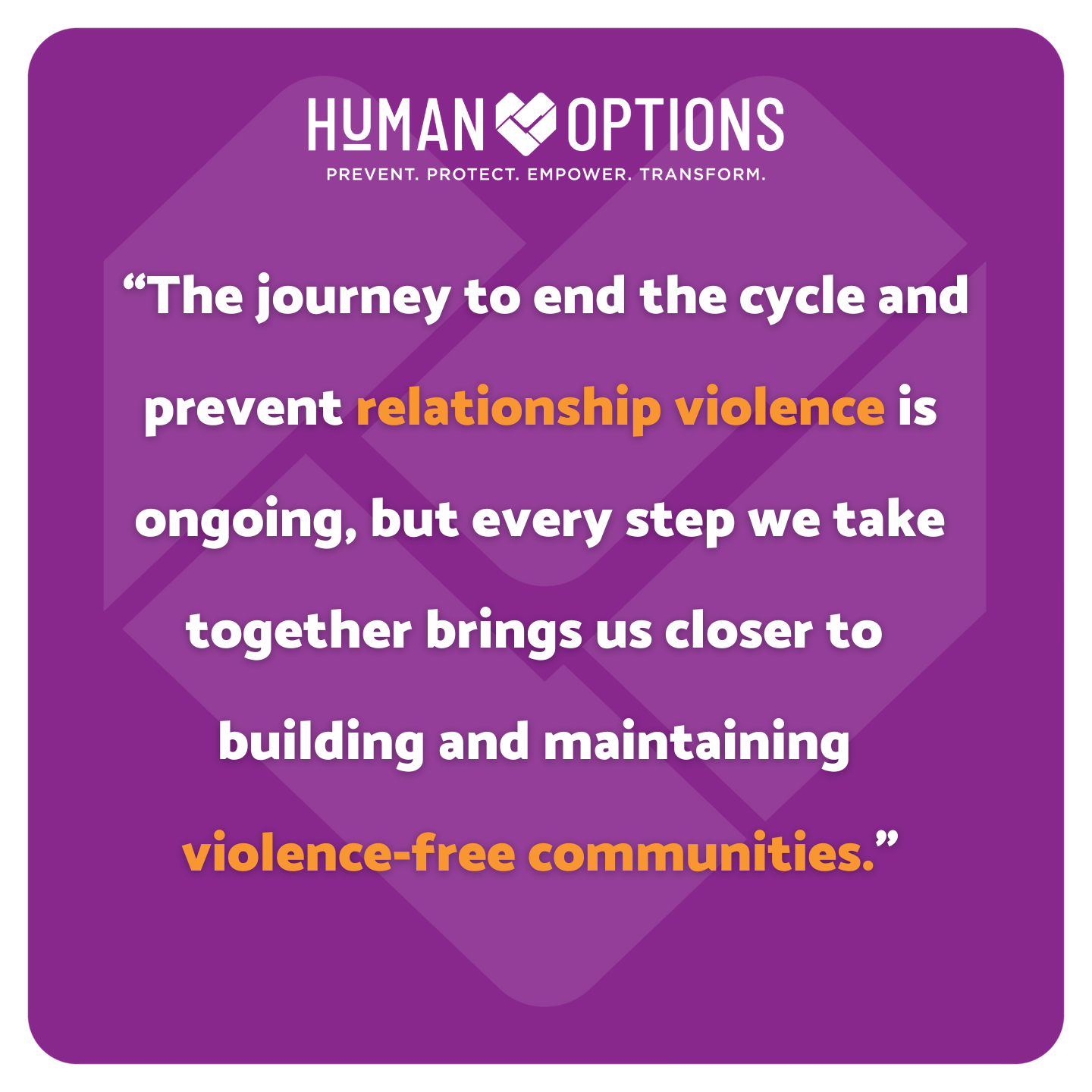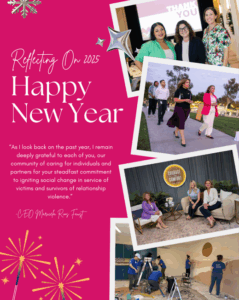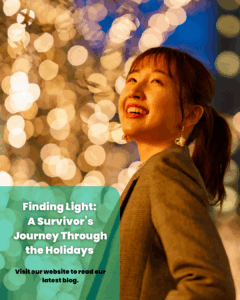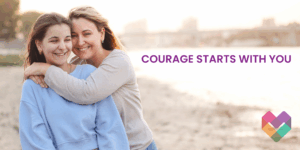By Arezoo Shahbazi Roa, MSW, Prevention & Community Education Director
As the director of our prevention and community education efforts, I am deeply invested in the stories that come through our doors. Each narrative drives my passion for empowering individuals and communities to prevent relationship violence. It’s not just a job for me; it’s a calling rooted in compassion and a desire for change.
Understanding Relationship Violence
When I first started this work, I was confronted with the many faces of relationship violence– emotional, physical, sexual, digital and financial. I vividly remember meeting a young woman who had endured years of emotional abuse. As she shared her experiences, it became clear how easily these dynamics can remain hidden. For this reason, it is important to recognize the warning signs of abuse: controlling behavior, isolation, and manipulation. These are the early indicators that something is profoundly wrong; and education is our best defense.
Empowering Individuals
One of the most rewarding aspects of my role is the opportunity to bring awareness to educate others. I’ve seen firsthand how knowledge can transform lives. In our training and presentations, we cover topics like healthy relationships, recognizing the signs of abuse, consent, and how to respond to friends or loved ones in need. I recall a participant who once shared, “I never knew that what I experienced wasn’t normal.” Offering time and space is enough for people to learn about relationship violence and can prevent or help someone who may not recognize their relationship was abusive or unhealthy.
Building self-esteem is another pillar of our approach. I’ve witnessed individuals grow as they begin to recognize their worth. In our Personal Empowerment Program, participants engage in activities that empower them to set boundaries for themselves and in their relationships. It’s incredible to see someone gain the confidence to say, “No, this isn’t okay. I deserve better.” Each small victory builds toward a greater understanding of what a respectful and healthy relationship looks like.
Emotional intelligence is also a focus of our educational efforts. By helping individuals understand their own emotions and those of others, we foster deeper connections. I’ve seen participants learn to communicate their feelings effectively and resolve conflicts with empathy. Moments like these remind me of the transformative power of emotional awareness. An important part of our education is promoting bystander intervention, where participants learn how to safely and effectively intervene when they recognize abusive behavior in other people’s relationships and how to respond in a way where victims and survivors feel seen, believed, and are safe to get help.
Taking Action
I’ve seen the magic that happens when individuals come together, offering each other strength and understanding when addressing community issues. Awareness campaigns are another critical part of our community efforts, and I love seeing the community united around events that highlight and bring awareness to relationship violence, like our #SHINETHELIGHT Walking Vigils. The commitment and passion of community members like our city dignitaries, law enforcement and other key stakeholders inspires me every day and reminds me that we are all in this together.
Empowering change requires each of us to take action. I encourage everyone to educate themselves and share resources with their networks. It’s remarkable how a single conversation can spark awareness and encourage others to seek help or support. Being an ally to someone who is silently experiencing relationship violence can be lifesaving. I’ve seen firsthand how offering support to someone experiencing violence can be transformative. Sometimes, just being there to listen and validate another’s experience can make all the difference.
As I look to the future, I am filled with hope. The journey to end the cycle and prevent relationship violence is ongoing, but every step we take together brings us closer to building and maintaining violence free communities.
At Human Options we have a 24/7 hotline where victims can speak with an empathetic caring advocate to help them navigate resources and validate their experience. For more information call our hotline at 877-854-3594 or visit humanoptions.org.





